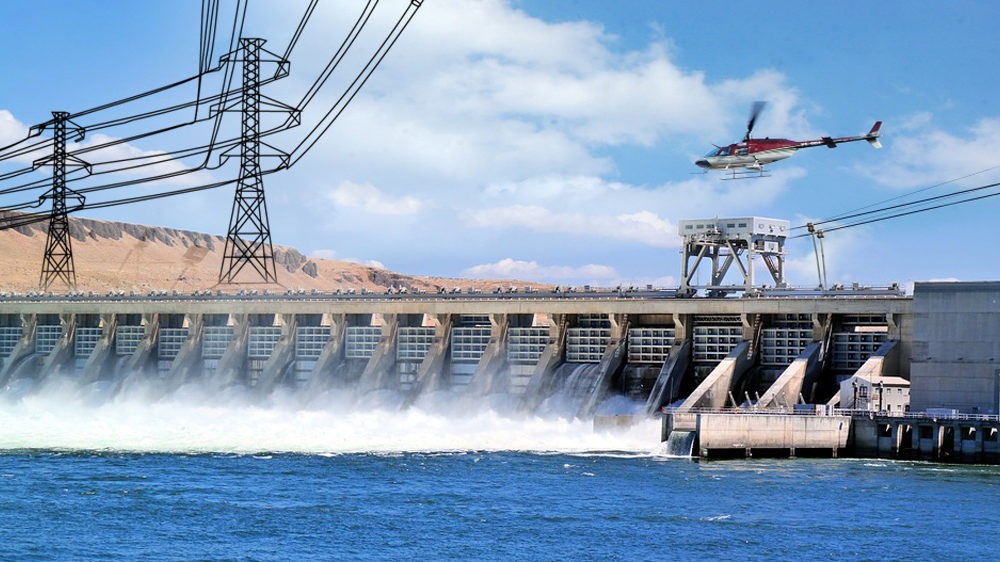Hydro-power: From being dependable to being debilitated
By EPR Magazine Editorial September 8, 2018 2:49 pm IST
By EPR Magazine Editorial September 8, 2018 2:49 pm IST

Once touted to be the most dependable, hydro power is now reduced to face many impediments across various stages of a project development life cycle. So, the big dispensable question is why is the hydro power shrinking? An analysis by our industry experts shed some light!
Hydropower is a renewable energy resource because it uses the Earth’s water cycle to generate electricity. Water evaporates from the Earth’s surface, forms clouds, precipitates back to Earth, and flows toward the ocean. The movement of water as it flows downstream creates kinetic energy that can be converted into electricity. India has a huge potential for hydro power development.
Neelav Samrat De, General Manager – Market Management, ANDRITZ Hydro Pvt Ltd says, “The hydro sector comes with a lot of political will, site specific conditions and require a hoard of clearances like other infra projects. Currently, the hydro sector, which has opened up for privatisation in the last part of the 2000s, has failed to see light at the end of the tunnel. This has resulted from lack of funding infusion, project cost overruns and failure of repayment of loans, thus turning into huge NPAs. All of these legacy issues have been coupled with the government’s focus primarily on renewable energy, mainly solar and wind.”
As a matter of fact, hydro has been kept on the back burner mainly for harnessing power from Himachal Pradesh, Uttarakhand and Arunachal Pradesh.
Siddartha Ramakanth Keshavadasu, Consultant, Energy Division states, “Like any other country, civilisation in India was started and developed around water sources, and even till date, many indigenous tribes dwell around rivers Development of hydro power plants need lots of land occupied by these dwellers. These dwellers not only make living out of these rivers but also are the biggest contributors in protecting the forests.”
Fortunately, the laws in the country have enough substance to protect forests and these indigenous tribes, yet providing enough scope for development of small hydro plants, which do not require (ESIA) Environmental and Social Impact Assessment. At the same time, the greed of some investors have exploited such provisions by splitting up a large hydro project into 2 or more small hydro projects and damaging the ecosystem and livelihood, which resulted in unrest among the locals near the rivers. Such unrest have eventually got the policy makers to stay away from further push for the development of small hydro and in fact, in adverse manner by tightening the laws pertaining to land acquisition from tribes.
Siddartha informs, “We still have a huge scope of harnessing hydro potential by re-designing the policy and creating new investor eco-system by true sense of public private partnerships with local people being the stake holders of the project in actual sense and in a water management and cooperative living perceptive. Examples of East Africa, Laos, Honduras and practice by La Esparenza in developing small hydro plants in the basin of Intibuca river in Honduras should inspire more.”
Contribution of hydro power
Restoration of Indian damsNeelav also shares, “Existing projects, barring the Narmada dam, have not witnessed many changes to their original design. There could, however, be a need to restore some civil structures for specific project locations in this region, which fall under the zone 5 categorisation of seismic activity.”
Though, the Indian power system is sceptical about hydropower, it is ideally suited to cater the specific demands of the system and address the impending concerns of hydropower developers. There is an immense need to work upon the more focussed, responsible and accelerated hydropower development. while ensuring sustainability and addressing socio-economic concerns around developing projects.
“The hydro sector is which comes with a lot of political will, site specific conditions and require a hoard of clearances like other infra projects.”
Neelav Samrat De, General Manager – Market Management, ANDRITZ Hydro Pvt Ltd
“Ecology of rivers and basins shouldn’t be disturbed and this can be achieved by revisiting the norms of what we call Renewable in terms of Hydro Power Plants.”
Siddartha Ramakanth Keshavadasu, Consultant, Energy Division
We use cookies to personalize your experience. By continuing to visit this website you agree to our Terms & Conditions, Privacy Policy and Cookie Policy.